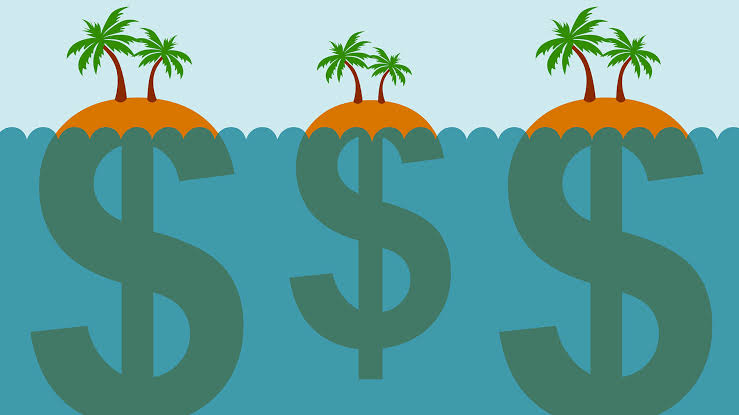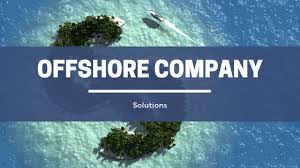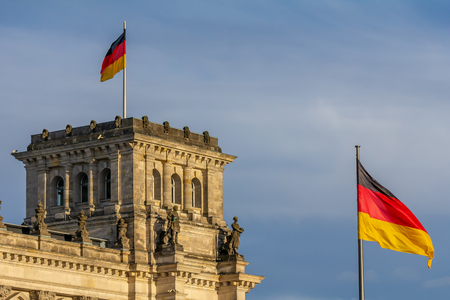Is there still a safe place for their wealth?
Is there still a safe place for their wealth?

I keep watching so-called “experts” recommending jurisdictions and emphasizing how great and perfect they are. But the truth is, there are no true safe havens anymore.
The reality may be surprising, but there is absolutely no longer a place where you can settle down personally, with all your assets, in complete safety. In a highly globalized world, all things are interconnected, both positive and negative. There is always someone – a group of people, a government – who, for various reasons, might be trying to access your wealth, even if you haven’t done anything wrong. Just ask Iranians, Russians, Syrians and Westerners like me who have invested in Russia and then been hit by sanctions from their own government.
In this report, I explain why Switzerland, Dubai, various European micro-states, Crown Dependencies, Panama, Singapore, etc. are not the perfect safe havens that many like to portray them as.
In a world of increasing geopolitical tensions, there is no longer a perfectly safe place. The safest strategy now is to diversify. But with diversification comes a larger presence in different regions. This means that at some point in your portfolio, something can go wrong.
Gone are the days when you could hide anything in Singapore or Geneva and feel 100% safe. The “new world” in which we must navigate will be one of tension, deceit, and extremely aggressive governments and people.
However, with the right strategy and especially the right mindset, it is possible to minimize risk and even be successful.
These are the kind of conversations I have in my internationalization and diversification consultations.
Switzerland is no longer a real safe haven
Switzerland, traditionally considered a safe haven, has changed in recent years. Although it has historically remained neutral during both world wars, it has since signed a number of agreements with the European Union and is more closely aligned with the West. This means that she now also takes sides when conflicts arise. An example of this is the imposition of sanctions on some Russians in connection with the situation in Ukraine.
As a result, there is now also a risk that individuals who invest their money in Switzerland could fall under sanctions, with which Switzerland is now allied. Politicians in Switzerland have even announced that in the event of a conflict between China and Taiwan, they would also impose sanctions on China. Overall, Switzerland has thus put itself in a position where it can no longer be regarded as an absolutely safe haven.
There are other small European countries and territories, such as Liechtenstein, Andorra and Monaco. However, due to their small size and dependence on the European Union, they cannot be considered safe havens.
British Crown Dependencies such as Guernsey, Jersey and the Isle of Man also often offer interesting banking opportunities.
However, they are closely linked to the UK and risk being hit by sanctions as well. It’s often assumed that the British Isles welcome foreign wealth, but this can be a misleading impression. Historically, many Russians were warmly welcomed by the UK in the 2000s, only to be later expelled and their assets frozen. Therefore, people investing their money in the UK or British Isles should consider the risk of such a development and not simply follow the marketing strategy.
The UK has fought in many wars around the world over the centuries and is considered an aggressive nation from a foreign policy perspective. It interferes in many matters and is often argumentative.
Therefore, it is not considered a safe haven. Many people make the mistake of putting their money in the UK because they think it’s safe there. However, it is unwise to do so as the West takes a collective approach and imposes sanctions on entire nations, including all individuals and not just government officials.
This also applies to British dependencies such as Crown Dependencies and British Isles which offer good banking and financial services but are still not a safe haven. It is important to note that anyone, regardless of nationality, can be subject to sanctions and as such investors should exercise care when choosing a safe haven.
The Caribbean countries are not independent enough
Next, we can discuss the Caribbean. The challenge with the Caribbean region is a combination of what we previously discussed with the British Isles and the small European countries. Due to their small size, these countries often face bullying from larger entities such as the UK, the European Union, and the United States. This is particularly evident in their banking sector where correspondent banking is often cut off in response to issues, leaving the banks unable to conduct international transactions in US dollars. Additionally, many of these islands run citizenship by investment programs, which face constant pressure from the European Union and the United States to shut down, improve compliance, and restrict their acceptance of certain countries. As a result, these countries are not true sovereign nations as they lack the necessary strength and independence.
Panama’s stability concerns
Moving on to Panama, there are a lot of positive aspects to this country. However, it constantly finds itself on various blacklists and grey lists, making it difficult to transfer money to the European Union. Additionally, Panama has been facing social and political instability recently with protests disrupting the supply chain and causing shortages in stores. It is difficult to consider Panama a true safe haven due to the high levels of cartel activity and social instability. While it may still be a viable option for now, these inherent stability concerns cannot be ignored.
Dubai’s judicial system is too biased to be a true safe haven
There is a particular location that some individuals perceive as a safe haven, namely Dubai. Despite the positive reputation and marketing efforts of the city, it is not truly a safe haven for two main reasons. Firstly, Dubai has a strong foreign policy, which can result in political and geopolitical risks.
For example, tensions between Iran and Dubai could potentially escalate. Secondly, as a non-citizen in the Gulf, you have no legal rights, which means that if you get into legal trouble with a local, you will always lose in court, regardless of who is at fault. There are two legal systems in the Gulf: one for locals and another for foreigners. While Dubai has its positive aspects, individuals who live in the city are aware of the reality and typically do not invest all of their savings there.
This passage discusses the positive aspects of Dubai, such as its residency options, lack of taxes, and variety of activities. However, the author also notes that those who market Dubai as a perfect destination are incorrect, as the city has geopolitical risks and a legal system that favors locals over foreigners. The author suggests that those who know Dubai well do not put all their savings there, instead choosing to keep the bulk of their wealth overseas.
Mauritius has the potential for social issues
Mauritius is an interesting option for those looking for a safe haven, as it offers decent financial services and is doing a lot of business between Africa and India. However, it has a tendency to occasionally appear on grey lists, and had extremely hard lockdowns during the COVID pandemic which made it difficult to access assets without the proper power of attorney. Additionally, there are relatively high levels of inequality and racial disparity in the country, which could be problematic in the event of an economic downturn. While Mauritius is performing better than Panama and is not currently experiencing as many issues, it still poses a potential risk.
Hong Kong
Hong Kong There is an example of what can happen to safe havens, and a potential risk associated with Singapore. The example is in reference to a location that experienced a well-known incident that caused it to no longer be considered a safe haven. The potential risk with Singapore is due to its geographical location on the Strait of Malacca. If a conflict were to arise between China and the United States, it would be difficult to imagine that Singapore would not be impacted. Despite Singapore’s wealth, stability, and strong rule of law, the risk associated with its location is a concern.
Singapore
A quarter of global trade passes through the Strait of Malacca, including a significant portion of China’s oil. In the event of a conflict between China and the Western countries, Singapore’s proximity and the strategic goods and resources passing through the area would make it a valuable asset to secure. Singapore, a flat country with a population that is predominantly ethnic Chinese, possesses substantial financial assets and gold reserves due to its strategic location.
Although it is not being suggested that China would invade Singapore, it is important to consider this unlikely possibility in a world with heightened geopolitical tensions. This tail risk should be factored into any strategic planning.
The main message is to caution against blindly believing claims that certain places, such as Dubai, Panama, or Singapore, are perfect safe havens for investments. The speaker argues that there is no such thing as a perfect safe haven anymore and that diversification is the safest approach. Rather than relying solely on one jurisdiction, it is beneficial to use each one for specific purposes and build a portfolio of assets and services across various locations. While each jurisdiction has positives, it is important to also consider their negatives. The speaker travels around the world to explore opportunities and offers consulting services for those interested in learning more about the pluses and minuses of different jurisdictions and how to build a portfolio that works for their specific situation.
——————
We’ve helped hundreds of people move their businesses overseas, legally reduce their taxes, and become dual citizens. We are focused on high-net-worth individuals and their families as well as corporations wishing to invest their offshore companies or even secure their wealth in offshore financial centers around the world. We will help you to find the best solution for setting up an offshore or onshore company. Another special area of our full-service consulting is the investment opportunity and solution in Europe, especially in the Balkans, Africa, Asia, UAE, the Caribbean and the Pacific.
If you are looking for it, please feel free to contact us. We create a holistic plan that serves your purpose.
TCME – Group worldwide is a leading professional International Business Investment and Advisory Firm for Foreign Economic Relations, with 17th. departments in different Countries around the world and the Headquarter in Malaysia.
GCI UNIT Worldwide, designs and implements customized, holistic strategies for successful investors and entrepreneurs to legally reduce their tax bills, diversify and protect their wealth, invest abroad, gain a second citizenship and live a freer life worldwide to lead.
YOUR CHANCE FOR A BETTER LIVE
GCI Unit Worldwide firm is a professional International Business Investment and Advisory Firm for Foreign Economic Relations. Our range of services includes:
• Offshore and Onshore Company Formation,
• executive Search,
• IT & Cyber Security Protection
• African Gold & Diamonds
• international Business & Management
• Citizenship & Residency
• Investments & Corporate Financing
• Mining and Trading
• Advisory for Foreign Economic Relationship
• Diplomatic Consultancy & Public Affairs
If you would like to discuss your internationalization and diversification plans, book a consulting session* or email us under: [email protected]
*A counseling session is a conversation about your portfolio and goals. It does not constitute legal, financial, tax or investment advice.
Department GCI – Unit Global Citizenship Investment (GCI Unit worldwide)
by TCME Worldwide Group – Global Investments –
Level 33, Ilham Tower, 8 Jalan Binjai,
Kuala Lumpur 50450, Malaysia
www.tcme.company
www.citizenship-news.com
Phone: +66 99091 8357 also for WhatsApp





